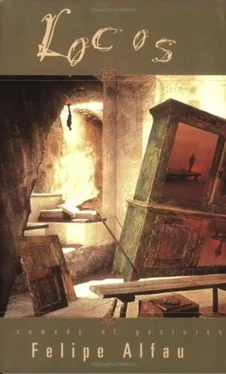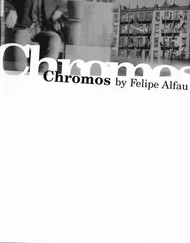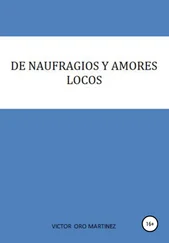“So long.”
And then I thought:
Already in the age of dreams and meaningless pursuits. Same Olózaga and great Chinelato, always after love and adventure and then the paradox. by always running after the practical he has lived a most romantic life. His life is a lesson. But now his time is gone. He is right: he has outlived his epoch. and that is sad.
My true friendship with Dr. José de los Rios dates from the time of the incidents I am about to narrate. Although I had met him some time before, it was not until then that I came into close contact with him.
The incidents are as follows:
Doña Micaela Valverde was a middle-aged woman who lived alone with a servant in the Barrio de Salamanca, the same part of Madrid where Dr. José de los Rios had his residence.
Not having any near relatives and to all appearances very little interest in life, Doña Micaela concentrated her activities to a great degree on going to church. She went to early Mass at dawn, to the benediction in the evening, and during the middle part of the day she always engaged in some sort of novena, or else in one of those cumulative series of prayers in which one prays one paternoster the first day, two paternosters the second and so on, up to fifty or whatever the top number may be, and then decreases the dose accordingly, just as one does with medicines which are dosified, by increasing and decreasing the number of drops.
With these dosified prayers one is supposed to attain practically any purpose which comes under the dominion of the saint to which they are dedicated, or the saint may even be moved by such perseverance to use his influence with bigger saints or with God himself.
These cumulative demands upon heaven were a specialty with Doña Micaela, but I have been unable to discover what she could demand so persistently and constantly.
Doña Micaela Valverde was just as the reader will imagine her, but with the exception that she was not lean. Of course, her features and expression were hard and she was pale, but she was not lean and, as a matter of fact, she was rather well developed. If it had not been for her perennial black attire and something more difficult to define about her, she would have come under the adjective of attractive.
However, there was something about Doña Micaela that was weird. Dr. José de los Rios called my attention to this fact. It was that appearance of a wax figure that no matter how faithful an imitation it may be of nature, is always sordid. Her clothes did not wrap Doña Micaela with a warm, soft caress as they do other people; they just lay on her with apprehension and coldness, visibly displeased by the close contact. Those clothes did not cover a resilient flesh that yields and adapts itself to its surroundings, they seemed to cover a stiff frame and that reluctantly as one who complies with a distasteful duty. Seeing Doña Micaela one realized that clothes sometimes have feelings.
Aside from her churchgoing. Doña Micaela had another hobby and this was to attend funerals. She just loved them and was present at every funeral she could gain access to. As her acquaintances could not furnish her with enough material to satisfy her voracity, she was known to chase all over Madrid looking at doors and windows, and wherever she discovered the slightest sign of death she rushed in and, under any pretext, literally forced her presence upon the grief-stricken gathering, often saying that she had known the deceased at some time. She uttered indelicate and tactless comments, gloating over the most repugnant details.
She would say, devouring the corpse with her eyes:
“How thin he looks! He must have suffered greatly.”
“Why no. Doña Micaela, he had a very pleasant death, fortunately, just as if he had gone to sleep.”
“Hmm. his features look distorted to me. His agony must have been long. Hmm. yes, this is terrible. I remember my poor Joaquin. yes. It was apoplexy and he was all black in the face. Hmm. It was horrible. I was like a madwoman and wouldn’t let them take him away. Hmm. until the neighbors complained because of the smell. Hmm. It was great. Hmm. I mean, terrible.”
Doña Micaela gave the corpse a last long look and even stroked it if no one was looking, and then rushed to another funeral, leaving the family in a worse condition than before.
She entered the next place with a professional air.
“Hmm. we have death today, I perceive. I am Doña Micaela Valverde, at your service. Hmm. you did not know me, but I was a good friend of hers. Yes, this is terrible.”
“It is very kind of you, Señora Valverde, to show this last attention. ”
“Tut tut, my child, it is a pleasure. Hmm. I assure you it is a pleasure.”
Doña Micaela turned several times about the bed or coffin, as the case might be, with a critical air, looking, sniffing, if possible touching.
“Did you stuff all her cavities carefully, my child? Hmm. you had better let me adjust that serviette about her face, it is loose and her mouth is not completely closed. Hmm. she looks like a person with a toothache and not like a regular corpse.” And Doña Micaela proceeded to adjust the napkin with nimble, pale hands that matched the corpse, delaying the operation, handling the body as much as possible and talking all the time:
“I remember the time that my poor Nicolas died. I forgot to close his mouth and when they carried him away it was wide open. as if he were still yelling from the pains he had before he died. Hmm. these things are terrible. I shall never forget those moments at the cemetery when they buried my two poor husbands. Hmm I can still hear the sound of the first pail of dirt upon the coffin.”
And then Doña Micaela rushed away.
“Good-by, my child, and don’t forget to call me the next time.”
When Doña Micaela arrived home she was all out of breath.
“Jacinta,” she addressed her old maid, “five funerals today. Hmm. very good day. yes. I have not wasted my time.”
Jacinta shook her head and went back to her kitchen silently.
At night Doña Micaela frequented the tertulia of an undertaker down the street, and there she spoke of death to her heart’s content and argued long with her host. She could not bring him around to see things in her way. The undertaker liked death in a philosophical manner. He regarded it as a business question, whereas Doña Micaela considered it purely from an aesthetic viewpoint. She liked death for itself. However, they both agreed upon one thing: that there were not as many deaths as they would have liked, and they often held conversations like this:
“I don’t know what is the matter this winter. It does not seem to get cold enough.”
“No. I have not heard yet of a single case of pneumonia, not even a bad cold.”
“Yes. it is terrible. They speak so much about that famous breeze from the Guadarrama, Hmm. I have not seen it do any harm yet.”
“And with so many old people in Madrid, too! All they need is a little cold wind and. ”
“Yes. Hmm. very discouraging. I mean. Hmm. yes.”
Doña Micaela and the undertaker were good friends. She helped him in his business and he helped her in her hobby. She had become a most accomplished sleuth for death. She could scent it a mile away. She often said that she could see in people’s faces if they were going to die soon and she often communicated these hunches to her friend the undertaker and he made his preparations.
On the other hand, he allowed her to potter around his funeral paraphernalia and she had even seen him work on several occasions. Of course, they did not admit openly their mutual weakness, but they knew that they could count on each other’s sympathy. They spoke of their pet subject in an unctuous voice verging on obscenity:
Читать дальше












